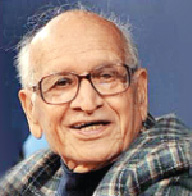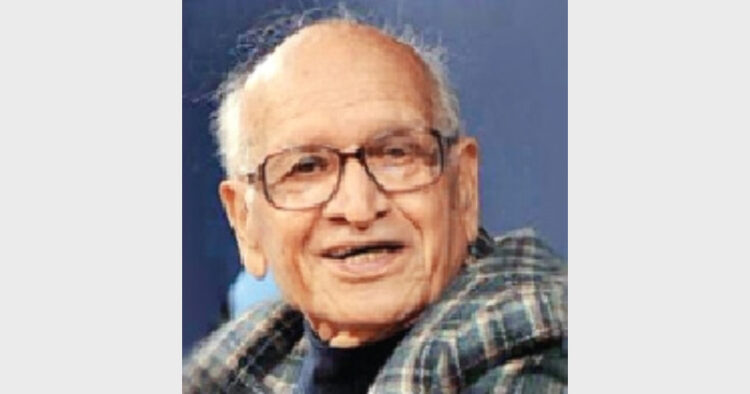 Intro: Known for his leftist bent of mind— a cabal of JNU Marxist historians, eminent historian Bipan Chandra adopted fiercely independent position on communalism and anti-imperialism.?
Intro: Known for his leftist bent of mind— a cabal of JNU Marxist historians, eminent historian Bipan Chandra adopted fiercely independent position on communalism and anti-imperialism.?
Professor Bipan Chandra, one of the prominent writers of modern History who passed away on 30th August will be remembered for the twist he gave to modern History, particularly the Indian National Movement—the Struggle for Independence.
After joining Jawaharlal Nehru University, a well known Centre of leftist ideology, as senior professor of history in 1970, he influenced younger generation of historians. Getting full government patronage, he helped in formulating government policies. He also functioned as advisor to National Council of Educational Research and Training (NCERT) and re-structured history books for secondary classes and removed altogether the names of leading freedom fighters—Bal Gangadhar Tilak, Lala Lajpat Rai and Mahamana Madan Mohan Malaviya who reposed faith in Hindu religion, culture and civilisation.
Some younger historians of his team and media persons even had the audacity to call them “Communal bigots”. Because of which the two generations which came up during Chandra’s period do not know all they should know about their leaders.
In history writing, the role of Indian Marxist (especially Bipan Chandra), in the matter of political practice, as in writings, on the issue of communalism, has been to confuse and avoid discussion. He including others always insisted on thrusting the entire responsibility for communalism on Hindus by all means. They never criticized Islamic terrorist organisations but regularly complain about Hindu leaders, organisations like RSS, Bajrang Dal etc.
All efforts made to get the contribution of Mahamana Madan Mohan Malaviya included in history text books for secondary classes failed to change the attitude of NCERT which worked under the influence of Chandra. The history books produced during his period had only one line mention of Malaviya ji that he attended the Round Table Conference, whereas one full page was devoted to Syed Ahmad Khan, the Founder of Aligarh Muslim University. Even at the intervention of Dr Shankar Dayal Sharma, the then President of India and later by the PMO under directions of Dr Manmohan Singh, there was no change in situation; so strong was the hegemony of the Marxist historian.
It would be worthwhile to find out how this unhappy situation arose in the country when contribution of
our top leaders who brought Independence and whom even Mahatma Gandhi and Jawaharlal Nehru adored were wiped off from books of History using unscrupulous approach for writing history.
It appears Chandra followed Nehruvian line of secularism keeping religion out of the purview of Government. Jawahar Lal Nehru, the first Prime Minister of India adopted the western concept of secularism and even introduced it in the Constitution of India.
In his bid to keep religion away from the Government, he went even against the doctrine of Mahatma Gandhi who felt that religion was an essential part of social life and was essential for keeping moral values and ethics as the guiding factors of society. For Nehru, no religion was true, hence, the state should avoid it; for Gandhi all religions were true, but the state should not espouse any one religion. He did not agree with Nehru’s policy of “Dharma Nirpeksha” and rather believed in “Sarva Dharm Sam Bhav”. For Gandhi, unlike Nehru, religion was not something to be avoided but to be inculcated without giving preference to anyone religion.
-PL Jaiswal ?(The writer is a veteran journalist and founder of Mahamana Malaviya Mission) ?














Comments